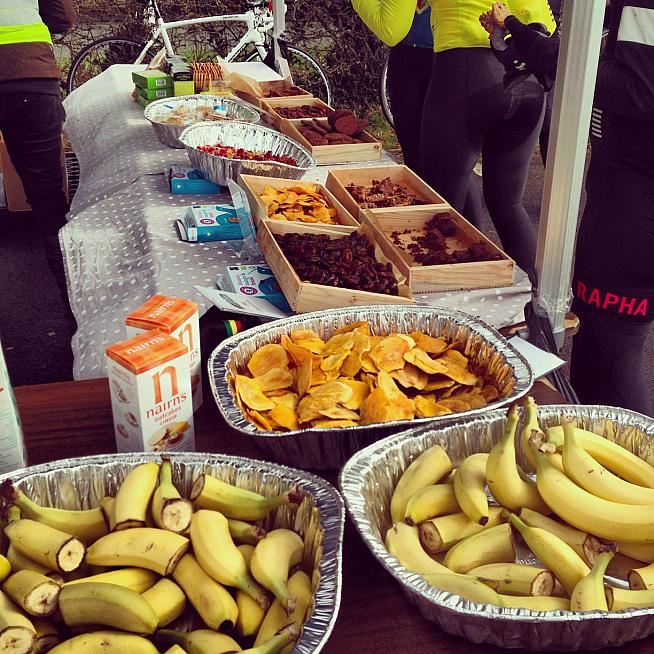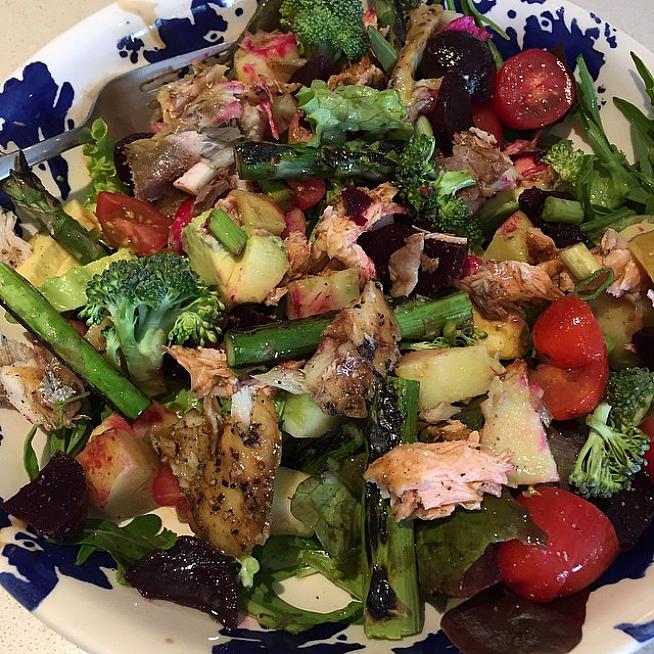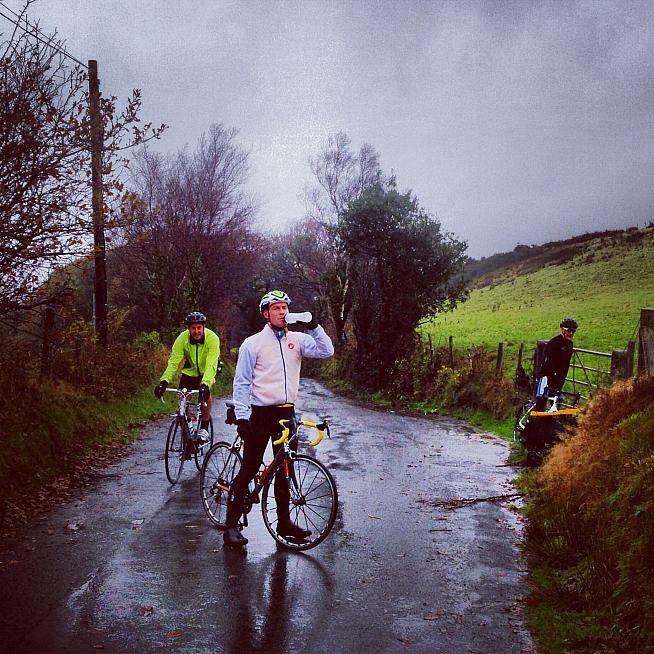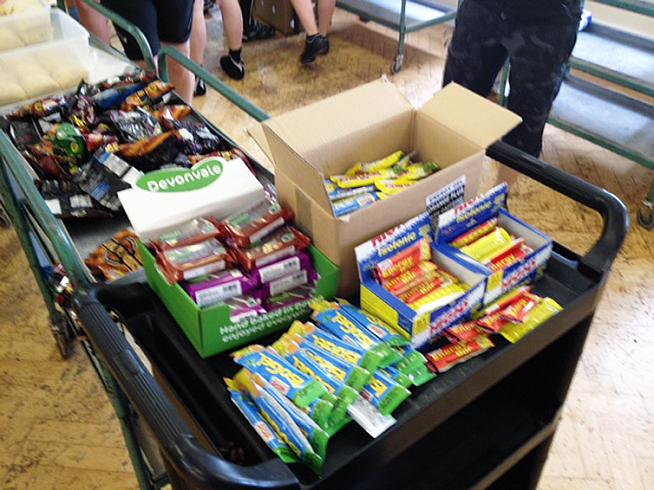
The problem is, we have very limited supplies of glycogen in our muscles and liver at any one time, so before your event you need to make sure that you are fully topped up.
Carb loading is the process of maximising your glycogen stores in preparation for a long endurance event, usually something longer than two hours duration. On average you can only store enough glycogen in your body to sustain two-three hours exercise before you bonk or hit the wall. This is also why I tell people that for 60-90 minute training rides you don't really need to be stuffing your face with gels providing that you have eaten a proper meal one-two hours beforehand.
So what does a carb loading plan look like? There are plenty of articles about this on the internet that talk about the wet weight of carbs and measuring things out into beakers if you are into that sort of false precision. Through trial and error we think we have a plan that will work for the majority of riders.
I start my high quality carb loading four days before the event as part of the taper week, with the emphasis on high quality carbs. Remember that during the taper we should be keeping our training volume low and intensity high. This not only keeps your metabolism firing, it also ensures that you are not burning too much glycogen.

- If possible have six small meals a day or three regular meals and three high quality snacks. The idea here is to stop glycogen levels falling significantly at all during the four day period.
- For breakfast (as soon as you wake up) have a bowl of big flake porridge or low fibre cereal with some chopped fruit or two-three slices of wholemeal toast.
- Mid-morning have a high quality snack such as a slice of wholemeal toast with peanut butter and some fruit or chopped raw vegetables.
- For lunch have a bagel with plenty of salad or steamed vegetables and lean meat such as chicken.
- Mid-afternoon have a handful of nuts/seeds or make yourself a fresh fruit and yoghurt smoothie.
- For dinner have wholemeal pasta with sauce or brown rice risotto with a piece of chicken or salmon and plenty of steamed vegetables. Don't go mad on the quantity of pasta or rice though as it will make you bloated.
- Keep fat, including fatty meats, to a minimum to keep gut residue low to ease the transit of food through.
- Keep the fibre content low as well so that you can go before your event starts, and shed a few unnecessary grams of weight!

If you get the carb intake and the hydration right then you might be looking at a performance gain of around 7% which is significant for long distance endurance events. On the event day itself here are some other tried and tested tips:
- On the day of your event try and eat breakfast, assuming that the event starts in the morning, one-two hours before the start time.
- Don't go mad and stuff your face, just have your normal breakfast and perhaps an extra slice of toast.
- On the way to the event gently sip on a 500ml bottle of sports drink and aim to have finished that 45 minutes before the start time so that you can go for a pee before the start.
- During the event keep hydrated with a sports drink (I need around 500ml per hour but everyone is different and it depends a lot on conditions)
- Try and take on board some decent quality food such as the Jersey Pocket range of organic cold press energy bars and oat based bars which are around 270 calories. I find that I need a quarter of these every 20 minutes during a Super Sportive lasting 5-10 hours plus some bananas, bread and a few handfuls of nuts and dried fruit. You are welcome to subscribe to the 'In The Pocket' emails where they talk about all things health over at www.jerseypocketenergy.co.uk Anyone signing up gets a 10% discount on their first purchase in the online store.
- I also keep a supply of caffeine gels in my back pocket just in case I need them, but I don't really like them and often never use them.

Increasing your intake of quality carbohydrates as described above really does work and not just for me. The Propello team of riders have long been adopting this approach pre event, and it has helped us win a decent haul of gold medal times throughout the season.
Rob Wakefield is a fully qualified Level 3 Cycling Coach with the Association of British Cycling Coaches and founder of Propello, a cycling focused health and fitness business delivering Performance Training Programmes and Bespoke Coaching to cyclists anywhere in the world.
All cyclists who are looking to improve their speed, endurance or strength will benefit from a structured training programme. Propello Training will improve how your muscles, lungs and heart work and will enable your body to transport and utilise fuel effectively - making you faster and stronger for longer.
Click here to learn more about Propello.
0 Comments







